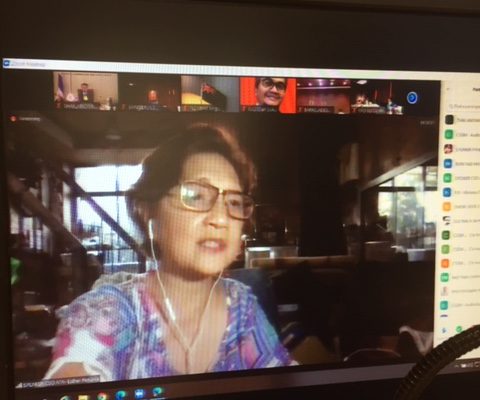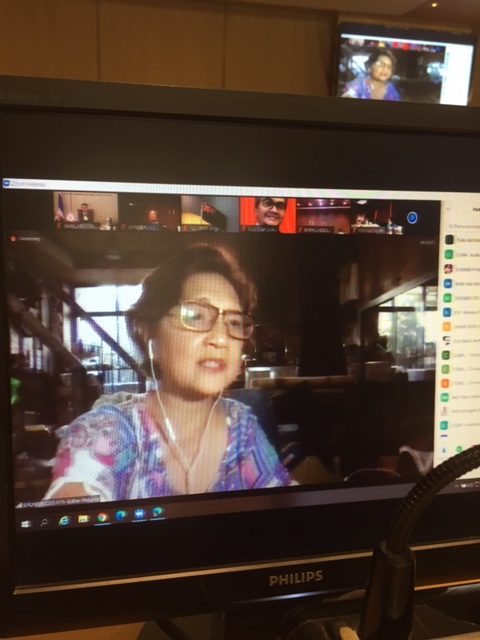The Asian Farmers’ Association for Sustainable Rural Development (AFA) participates in the FAO 35th Asia Pacific Regional Conference (APRC) happening virtually on 1-4 September 2020. AFA, along with 26 other regional and national CSOs in the Asia-Pacific, represents the civil society organizations in this conference.
On the first day of the event, AFA Secretary-General Esther Penunia delivered the CSO statement, highlighting CSOs key messages on food systems, water for agriculture, small scale fisheries, and multi-year Program of Work.
“Thank you , Mr. Chair . We, CSOs in Asia-Pacific, have submitted our interventions for each of the Items in the discussion. We would like to share with you CSO key messages for all these items. The current pandemic is most likely caused by the incursion of industrialized agriculture system into ever more remote forests; proving once again that this system endangers the entire humanity,” Penunia says in her intervention.”We thus need a radical transformation of agriculture–one that solves in an integrated manner the problems on climate change, public health, environmental degradation, aging of farmers, and gender inequity.”
How do we mend a broken food system? How do we create a better, more resilient, climate, and pandemic proof food system? CSOs recommend to FAO and member states the following:
- Include at the table, not on the menu smallholder farmers, fisherfolks and coastal communities, indigenous peoples, stewards of our biodiverse systems, recognizing them as co-equal and actors in localizing sustainable food systems and nutrition. Likewise, Transparent and inclusive mechanisms for CSOs and family farming organizations to meaningfully participate in shaping MYPOW.
- Promote the rights of family farmers, fishers, and herders over their lands, forests, and water resources, promoting the VGGT, RAI, and SSF Guidelines, as well as farmers’ control over digital technology platforms. Close the gender gap by addressing the specific needs of women in farms, fisheries, forests, technologies, and opportunities.
- Promote FAO’s 10 Elements of Agroecology which enables producers and consumers to define and secure their own food systems. Support digital documentation of farmers’ innovations, in getting the farmers’ Free and Prior Informed Consent on the utilization of farmers’ systems. Implement agro-ecological programs and services such as peri-urban and urban agriculture, a share of the access fees as part of the Parties of the Nauru Agreement (PNA), integrated water resource and ecosystems management in rain-fed agriculture, and STOPPING uneven trade agreements, land grabbing, large scale mining, mega-dam constructions, deforestation, air, and water pollution.
- Promote local food systems, shorter food supply chains, and inclusive value chains, where farmers, through their cooperatives and enterprises, are involved in the governance of these chains, such as Community Supported Agriculture, procurement of farmers produce by the local government for relief food packs, direct consumer relationships between family farming organizations and neighborhood, trade and office associations.
Penunia urges all stakeholders to act together, saying that CSOs, especially small scale family farming and fisheries organizations, can make important contributions as equal partners in implementing the plans of the United Nations Decade of Family Farming using the rights-based framework of the UN Declaration on the Rights of Peasants towards the achievement of SDG 1 and 2. #





Comments are closed